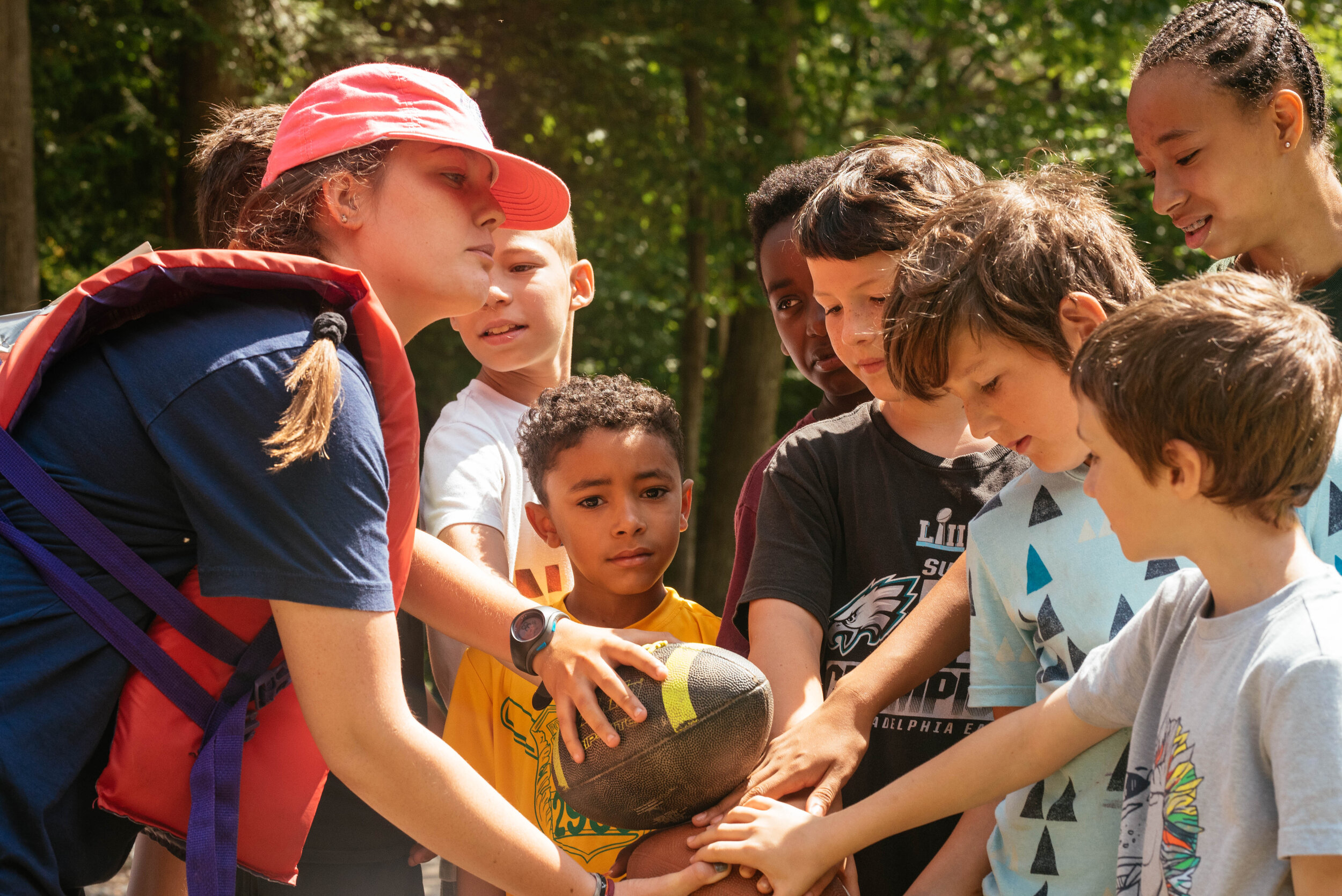Camp Fosters Conflict Resolution Skills - Mental Health Series
Camp is an antidote to the mental health crisis we are facing. Camp fosters resilience, emotional intelligence, and conflict resolutions skills. These skills will empower kids and communities to start to address the consequences of the pandemic.
Camp Fosters Conflict Resolution Skills
Watching as divisions turn violent around the country, it is scary to think about what young people today will conclude is the best way to sort through differences. Participating in community circles that are about what quiet hours should look like, or how a particular nickname can be offensive, are critical experiences that prove that it is possible to collaboratively solve problems within a community. These experiences at camp prove that if we listen to each other, we are likely to find that our common humanity lies in our emotions.
Conflict resolution skills is really where the rubber hits the road. It is where we can put into action the emotional intelligence and resilience that we get from the camp experience.
While camp makes having conversations about emotions commonplace, more importantly camp allows kids to sort through conflict in a healthy and effective way. Allison Klee, Stomping Ground’s camp director says that “Effective conflict resolution is the big net that catches us when our emotional intelligence and resilience is not enough. Emotionally intelligent people get into conflict, and we need a system in place to deal with it that addresses harm and maintains relationships.” We have these systems in place to maintain equity and reduce bias in a routine, process oriented way.
What is Restorative Justice?
Restorative practices are an ancient and innovative conversation tool. Indigenous cultures around the world are defined by the values and methods practiced in Restorative Justice. Ideas of community, collaboration, connection and caretaking are core to these cultures and foster a different sense of what justice means in their society. Fania Davis, a leading voice in the restorative Justice moment sums up the intentions of the movement in the following way. “Restorative justice is profoundly relational and emphasizes bringing together everyone affected by wrongdoing to address needs and responsibilities and to heal the harm to relationships and community, to the degree possible.”
At camp we employ restorative practices to build community and to help us collaboratively solve problems with kids, not for them. (Check out camp's recent podcast series on restorative practices!) By taking the time to listen, hear, and understand where another person is coming from, we build empathy.
80% of the circles that take place at Stomping Ground are community building circles, they might happen spontaneously after an awesome group activity, or as a way to check in with your cabin group in the morning, or to debrief and reflect on the day in the evening. 20% of circles take place to solve a problem or sort through conflict between individuals or in a group. Conflict circles range from small circles where the parties just talk with each other and try to sort out differences to large circles where many members of the community are involved. Camps are inherently restorative because of the time and energy spent on forming and celebrating community and relationships. Camp is about connecting with others and finding a sense of belonging. What if summer camps lead the charge on inspiring other systems and institutions to become more restorative?
Stomping Ground is spearheading a larger camping movement helping camps focused on restorative practices to foster connection and understanding, empower young problem-solvers, and create more confident kids and connected communities. Check out this article that Klee wrote about a 6 week long training we are providing for other camp leaders
The solutions already built into the fabric of camp communities feel salient when looking out at the destruction and devastation of the pandemic. Camps build emotionally intelligent, resilient, problem solvers, these skills work as armor when facing adverse experiences. The camp experience connects us to our other community members in a way that lets us see their humanity.
I have witnessed the transformative power of camp. Not just for the campers themselves, but for the staff, families, and concentric, expanding rings of community around each of us. There is so much work to be done. Together, lets inspire the next generation of radically empathetic decision makers.
Laura Kriegel - MSW
Co-Executive Director
laura@campstompingground.org
585-489-8880
Previous posts





